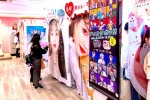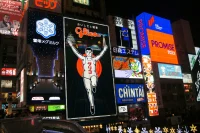Experience armor and ninja! What is the Samurai Museum? Introducing Spots in Tokyo and Kyoto
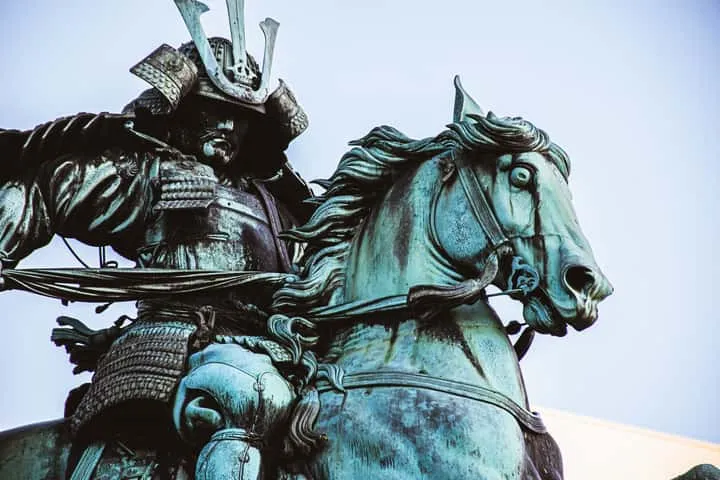
If you are interested in Japanese history and culture, the Samurai Museum is a must-visit spot. The museum is attracting attention both in Japan and abroad as a hands-on museum where visitors can fully experience the fascination of samurai and ninja.
From exhibits of armor and swords to sword fighting performances, there is plenty to see and do at the two locations in Tokyo and Kyoto, each with its own unique content that recreates the world of the samurai.
This article details the attractions and highlights of the Samurai Museums in Tokyo and Kyoto. Information on the facilities and nearby tourist attractions will also be introduced.
▼Goandup Picks Click here for recommended articles!
- Required before studying abroad! Goandup Nihongo+, an online Japanese language learning service
- This page introduces services for foreigners who wish to study in Japan or improve their Japanese language skills to learn Japanese online.
- Goandup Salon" community for foreigners living in Japan
- We introduce an online community where foreigners living in Japan can exchange information and interact with each other to support their life in Japan.
- Goandup Study" supports foreigners who want to study in Japan.
- This section introduces study abroad support services that provide comprehensive support to foreigners who wish to study in Japan, from preparation for study abroad to living in Japan.
- Where can I buy a prepaid SIM in Japan? Recommended SIM cards for foreigners are also introduced.
- How to purchase a prepaid SIM and suitable SIM cards for foreigners.
- The Complete Guide to Pocket Wi-Fi in Japan for Foreigners!
- We introduce how to select and recommend pocket Wi-Fi products that can be used conveniently in Japan.
- The Complete Guide to Finding a Job in Japan! Finding a job, changing jobs, and part-time work for foreigners
- This site provides foreigners who want to work in Japan with comprehensive information on how to find a job, recommended job sites, and other information necessary to find a job.
What is the Samurai Museum? Attractions Explained
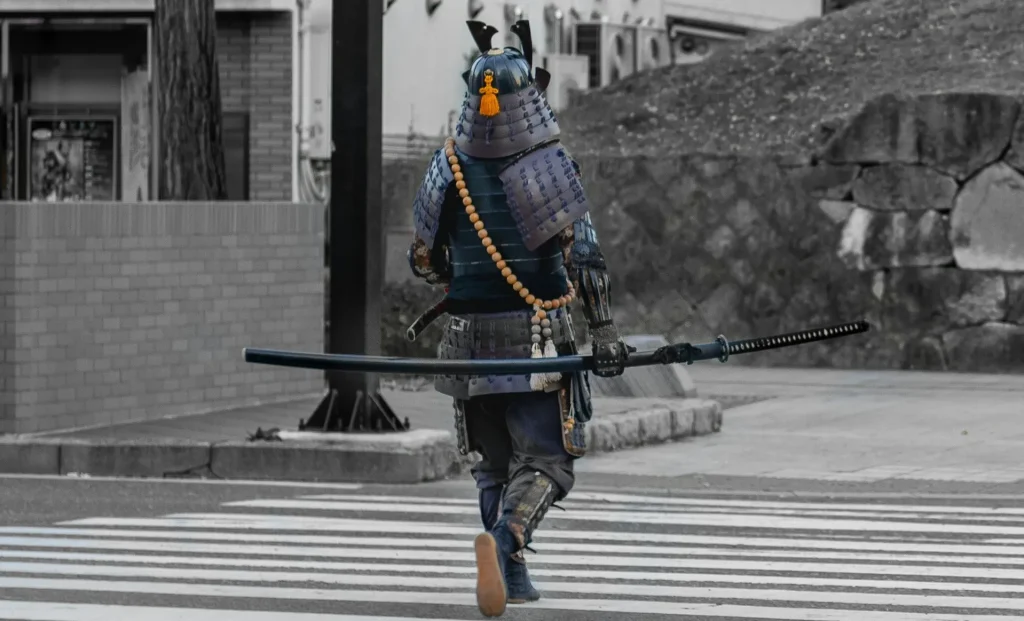
In a nutshell, the Samurai Museum is "a place where you can feel the samurai spirit.
Japanese samurai (Samurai) lived for about 700 years from Kamakura to Edo period. What kind of life did they lead and what kind of thoughts did they have? Through the museum's exhibits, hands-on programs, and shows, you too can experience the world of the samurai.
Inside the museum, visitors will find authentic Japanese swords and armor on display, as well as easy-to-understand explanations of how samurai lived in each era and the history of Japan. There is also a photo studio where visitors can dress up as a samurai or ninja for commemorative photos, and an armors and armors sales corner, perfect for picking up memories and souvenirs.
The Samurai Museum is popular among Japanese and foreign tourists alike. It is a rare opportunity to experience the spirit of the samurai, which we can feel only because we live in the modern age.
【 Tokyo 】 "Samurai Museum" Basic Information | Admission, Hours, etc.
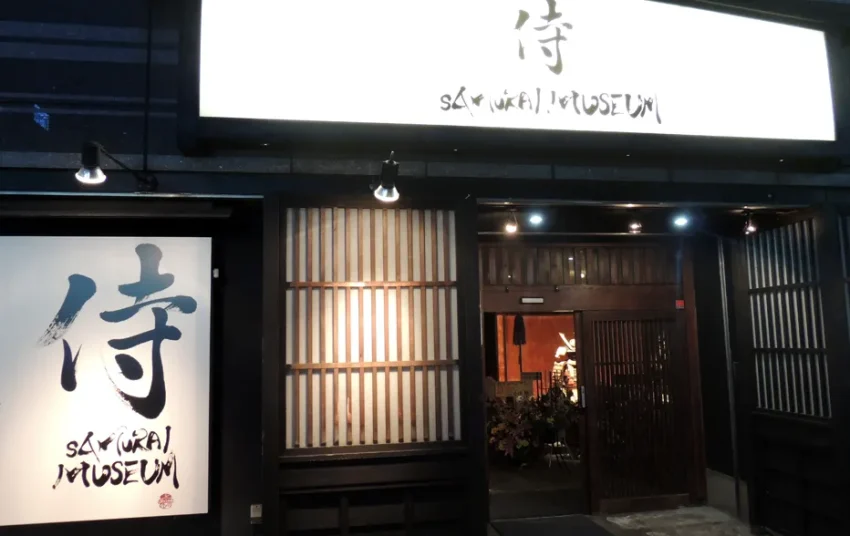
Basic information about the Samurai Museum in Tokyo is as follows
| Addresses: (in Japanese) | 2-25-6 Kabukicho, Shinjuku-ku, Tokyo |
|---|---|
| nearest station | 8 min. walk from East Exit of JR Shinjuku Station 4 minutes walk from Seibu Shinjuku Station Tokyo Metro Fukutoshin Line and Toei Subway Oedo Line 6 min. walk from Exit A1 of Higashi-Shinjuku Station Tokyo Metro Marunouchi, Fukutoshin Line, Toei Subway Shinjuku Line 10 min. walk from Shinjuku-Sanchome Station |
| admission fee | Adult: 1,900 yen Under 12 years old: 800 yen 3 years old and under: Free |
| Business Hours | 10:30 - 21:00 (last admission 20:30) Saturdays - 20:00 (last admission 19:30) Souvenir store open until 21:00 daily As of May 2024, the museum is closed due to the effects of the new coronavirus (reopening date undecided). |
Samurai Museum Experience Programs
The Samurai Museum offers the following events
| Event Name | Contents | cost | Hours. | remarks |
| Wearing Kabuto and Jinbaori (Japanese warrior's helmets) and having your photo taken | Visitors can take pictures wearing helmets and jinbaori, which are believed to have been worn by samurai. | Free (admission fee only) | 10:30 - 20:30 | Can be taken with your own camera or smartphone |
| sword fight show | Shows that recreate scenes of sword fighting (chanbara) in plays, movies, etc. | Free (admission fee only) | (1) 14:00 (2) 15:00 (3) 16:00 (4) 17:00 | Each performance of 10-15 minutes |
| Samurai Calligraphy School | Calligraphy experience with a professional calligrapher using ink and brush | 5,000 yen (including admission fee) | Reservations required, 19:00 - approx. 1 hour | Minimum of 2 people to participate. |
| Japanese Sword Course | Japanese swords, commentary on the history of Japanese swords and other topics by experts in sword history | 5,000 yen (including admission fee) | Reservations required, 19:00 - approx. 1 hour | Up to 15 students per class |
| Japanese instrument live | Japanese traditional instrument live performance by professional Japanese and traditional Japanese instrumentalists | 3,000 yen (not including admission fee) | Reservations required, 20:15~* approx. 1 hour (Doors open at 20:00~) | Held every Friday, Saturday, and Sunday (February 2019-) |
For programs that require advance reservations, you can check availability and apply through the official website. Why not join us and create memories of your visit to Tokyo?
【 Kyoto 】 Basic information about "Samurai Ninja Experience Museum Kyoto" | Admission fees, opening hours, etc.
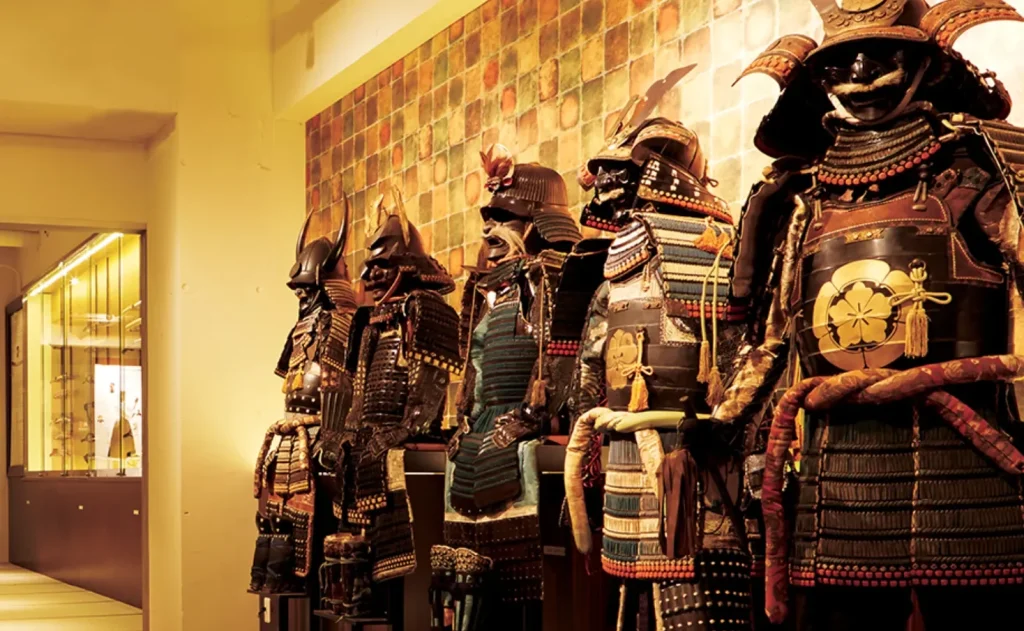
Did you know that not only in Tokyo, but also in Kyoto, there is a spot where you can experience samurai and ninja culture? It is called "Samurai Ninja Experience Museum Kyoto.
Basic information about the Samurai Ninja Museum Kyoto is as follows
| Addresses: (in Japanese) | 292 Higashidaimonji-cho, Teramachi Nishiki-kouji-sagaru, Nakagyo-ku, Kyoto, Japan Poetry alley building |
|---|---|
| nearest station | 1 minute walk from Nishiki Market 3 minutes walk from "Kawaramachi" station on Hankyu line 7-minute walk from Gion-Shijo Station on the Keihan Line |
| admission fee | Basic Ticket (with Ninja and Samurai experience) Adults: 3,000 yen Under 12 years old: 2,700 3 years old and under: Free |
| Business Hours | 11:00-18:00 |
Samurai Ninja Experience Museum Kyoto Experience Programs
The Samurai Ninja Experience Museum Kyoto offers the following hands-on programs (some require advance reservations).
| Experience Program | Contents |
|---|---|
| Samurai Ninja Basic Ticket | A special ticket that includes a basic samurai experience and a basic ninja experience in addition to the admission ticket to the Samurai Ninja Museum. For those who want to enjoy the hands-on museum in its entirety. |
| Ninja Shuriken Tournament | After practicing how to throw a shuriken, participants aim at a target and compete in a competition among family members and friends. |
| Secret Ninja Classes | A program to learn about the ninja and the weapons, tools and ninjutsu used in their secret missions throughout Japanese history. |
| Photographing in Armor | This program allows visitors to take photos wearing armor costumes and real helmets. Armor is available in a variety of sizes for children and adults. |
| Samurai Sword Experience | A hands-on program to learn how to properly hold a sword and take a picture with a sword in a cool way. There will also be a lecture about real Japanese swords. |
| Family Kenjutsu Experience | A family-friendly swordsmanship experience program that is safe and enjoyable for children. |
| Trial Cutting Experience | A test cutting experience program for those who are looking for a more special experience. |
| Ninja Experience | A program in which participants wear ninja costumes and undergo secret training, followed by a ninjutsu experience. An experience for family groups that both adults and children can enjoy. |
The Samurai Ninja Experience Museum Kyoto offers more than just a tour of the exhibits; it is a full-fledged hands-on program. The attraction of this museum is that you can feel closer to the samurai and ninja you have learned about in your history textbooks.
The transformation experience and the power of the show will surely be enough fun for children and adults alike. Why not visit with your family or friends? It will surely be a good memory.
Basic information about 【 affiliate 】 "Tokyo Samurai Museum" | Admission fees, opening hours, etc.
The Samurai Ninja Experience Museum Kyoto has an affiliate in Tokyo. The Tokyo Samurai Museum is located in Asakusa.
The basic data of the Tokyo Samurai Museum can be summarized as follows.
| Addresses: (in Japanese) | 1-8-13 Nishi Asakusa, Taito-ku, Tokyo |
|---|---|
| nearest station | 8-minute walk from Asakusa Station on the Tokyo Metro Ginza Line and Asakusa Line 2 minutes walk from Tawaramachi Station on Tokyo Metro Ginza Line 2 minutes walk from "Asakusa" station of Tsukuba Express |
| admission fee | 800 yen (tax included) *200 yen discount for junior high school students and under |
| Business Hours | 10:00-19:00 *entry until 45 minutes before closing |
The Tokyo Samurai Museum also offers a wide range of hands-on activities, such as trying on armor and watching sword fighting performances, making it an authentic museum that is popular with both history buffs and tourists alike.
Kyoto and Tokyo are two museums, each with its own unique character. If you conquer both museums, you may be able to call yourself a samurai connoisseur.
Information on attractions near each Samurai Museum
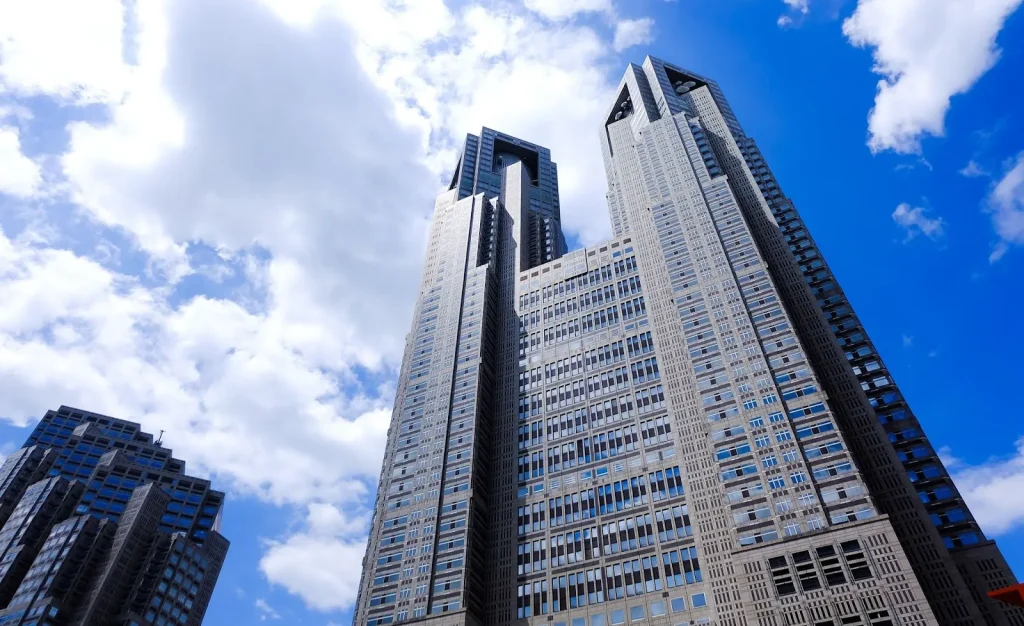
It would be a shame to stop at just visiting the Samurai Museum! There are many attractive tourist attractions near the museum. If you go to the trouble of visiting the museum, you will want to make sure to check out the surrounding spots as well, to ensure your visit is efficient.
Here is a selection of recommended places to stop by around the Samurai Museums in Tokyo and Kyoto. Please refer to them in making your travel plans.
【 Tokyo 】SAMURAI MUSEUM and other recommended sightseeing spots
Here is a selection of recommended sightseeing spots that are easy to visit within a short distance from the Samurai Museum. After contemplating the history of the Samurai, we recommend that you change your plans and enjoy the city of Shinjuku to the fullest.
1. Shinjuku Gyoen
Shinjuku Gyoen is a historic Japanese garden that opened in 1906. The vast grounds are beautifully decorated with seasonal flowers and plants. During the cherry blossom viewing season in spring, it is known as one of the best cherry blossom viewing spots in Tokyo.
A stroll through the park will give you a moment of peace and tranquility that will make you feel as if you are not in the middle of Shinjuku. You can admire the tropical plants in the greenhouse or relax by the moat. You can spend your time as you wish.
| Addresses: (in Japanese) | 11 Naito-cho, Shinjuku-ku, Tokyo |
| Nearest Station | 3 minutes walk from Shinjuku-Gyoenmae Station on Tokyo Metro Marunouchi Line 10 min. walk from JR "Shinjuku" station |
| Charge | General: 500 yen 65 years old and over: 250 yen Students: 250 yen Junior high school students and under: Free |
| Business Hours | Oct. 1 - Mar. 14: 9:00 - 16:30 (last admission at 16:00) 3/15-6/30,8/21-9/30: 9:00-18:00 (last admission at 17:30) 7/1-8/20: 9:00-19:00 (last admission at 18:30) *Closed every Monday and during the year-end and New Year's holidays. Open daily from 3/25 to 4/24 and 11/1 to 11/15 |
2. robot restaurant
Robot Restaurant is a unique entertainment facility that is truly the face of Shinjuku. Visitors can enjoy a dance performance by giant robots while enjoying their meal.
This famous spot has been used as a location for Hollywood movies and is crowded with tourists every day. The course meals are a bit expensive, but the excitement and excitement that you cannot experience anywhere else is guaranteed! It is also recommended for an anniversary dinner.
| Addresses: (in Japanese) | Shinjuku Robot Building B2F, 1-7-1 Kabukicho, Shinjuku-ku, Tokyo |
| Nearest Station | 4 minutes walk from Seibu Shinjuku Station on Seibu Railway Shinjuku Line 5 min. walk from JR Shinjuku Sta. |
| Charge | Admission fee: 8,000 yen per person Beef rib lunch box: 1,500 yen Sushi bento: 1,000 yen |
| Business Hours | 1st Performance: 14:30 Entrance 15:00 Gathering 15:30 Concert begins Second performance: 16:00 Entrance 16:00 Gathering 17:30 Start Performance 3: 18:30 Entrance 19:00 Gathering 19:30 Concert begins Performance 4: 20:30 Entrance 21:00 Gathering 21:30 Start |
3. Tokyo Metropolitan Government Building Observation Deck
The Tokyo Metropolitan Government Building houses the administrative offices of the Tokyo Metropolitan Government. In fact, this government building is equipped with an observation deck that can be used free of charge.
The observation deck is located on the 45th floor of the north and south wings, offering a panoramic view of Tokyo from 202 meters above ground. Feel the breath of the big city on your skin while enjoying the distant view of Tokyo Tower, Skytree, Mt. Fuji, and other landmarks. The view is different during the day and at night.
| Addresses: (in Japanese) | 8-1, Nishi-Shinjuku 2-chome, Shinjuku-ku, Tokyo Tokyo Metropolitan Government First Main Building Observation Deck is on the 45th floor |
| Nearest Station | Short walk from Tochomae Station on the Tokyo Metro Oedo Line 8 min. walk from JR "Shinjuku" station |
| Charge | free |
| Business Hours | 10:00-17:30 Temporary closure may occur. The North Observation Deck is closed on the 2nd and 4th Mondays, and the South Observation Deck is closed on the 1st and 3rd Tuesdays. |
4. Hanazono Shrine
Hanazono Shrine is a historic shrine that has been watching over Shinjuku since the early Edo period. The stately shrine pavilion standing amidst a cluster of skyscrapers evokes the atmosphere of good old Japan.
During the annual Tori-no-ichi (rooster market) in November, the shrine grounds are filled with worshippers seeking rakes and good luck talismans. The shrine is usually relatively quiet, but during the festival season, it is completely transformed into a lively place. There are many good luck charms and ema (votive picture tablet) available, so it is recommended to pick out a souvenir of your visit.
| Addresses: (in Japanese) | 5-17-3 Shinjuku, Shinjuku-ku, Tokyo |
| Nearest Station | Short walk from Exit E2 of Shinjuku-Sanchome Station on Tokyo Metro Marunouchi Line, Fukutoshin Line and Toei Shinjuku Line Approximately 7 minutes walk from East Exit of Shinjuku Station on JR, Odakyu and Keio Lines |
| Charge | free |
| Business Hours | 24 hours *The company office is open from 8:00 to 20:00. |
【 Kyoto 】 Samurai Ninja Experience Museum and nearby attractions
Kyoto is home to many historical buildings and venerable shrines and temples. There are many places of interest just in the vicinity of the Samurai Ninja Experience Museum Kyoto! The following five spots are particularly recommended.
1. Kyoto International Manga Museum
The Kyoto International Manga Museum is a hands-on museum where visitors can learn about the history and culture of manga. The facility is full of attractions, including a manga library and hands-on workshops, as well as exhibits of rare original manga drawings. Visitors can fully enjoy the depth of Japan's proud manga culture.
| Addresses: (in Japanese) | Karasuma-dori Oike-agaru, Nakagyo-ku, Kyoto-shi, Kyoto |
| nearest station | Kyoto City Subway Karasuma Oike Station (Karasuma and Tozai Lines), Exit 2, go up the stairs and make a U-turn. |
| admission fee | Adults 900 yen, junior high and high school students 400 yen, elementary school students 200 yen (Collection exhibits are extra) |
| Hours of operation | 10:00-17:00 (last admission at 16:30) *Check the official website for holidays. |
2. former detached palace Nijo Castle
Nijo Castle was built in the early Edo period (1603-1868) and is registered as a World Heritage site. It was once used as the shogun's Kyoto residence.
The splendid Karamon gate, the black lacquered palace, and the elegant gardens are all worth seeing. Many of the buildings have been designated as national treasures or important cultural properties, making this a spot where visitors can feel the weight of history.
| Addresses: (in Japanese) | 541 Nijojo-machi, Nijo-dori Horikawa-nishiiru, Nakagyo-ku, Kyoto-shi, Kyoto |
| nearest station | Get off at Nijojo-mae bus stop and walk shortly. 5 min. walk from Exit 2 of Nijojo-mae Station on the Kyoto Municipal Subway Line. |
| admission fee | Entrance Fee Only Adults 800 yen, Junior and senior high school students 400 yen, Elementary school students 300 yen Entrance Fee / Ninomaru Palace Adults 1,300 yen, junior high and high school students 400 yen, elementary school students 300 yen |
| opening hours (of a castle, etc.) | 8:45-16:00 (castle closes at 17:00) *Closed 12/26-31 |
3. fukko-ji temple
Bukko-ji Temple is a temple of the Myoshinji school of the Rinzai sect of Zen Buddhism, commonly known as "Hanano-ji. Both sides of the approach from the temple gate to the main hall are beautifully decorated with seasonal flowers.
The peonies in May are especially stunning. Why not take your time and enjoy viewing the flowers in a tranquil Japanese setting?
| Addresses: (in Japanese) | 397 Shinkaicho, Shimogyo-ku, Kyoto-shi, Kyoto |
| nearest station | 2 minutes walk from Exit 5 of Kyoto Municipal Subway "Shijo Station". Hankyu Karasuma Station on the Hankyu Kyoto Line, 5-minute walk from Exit 15 |
| entrance fee | free |
| Visiting Hours | 9:00-16:00 Closed on Mondays |
4. Yasaka Shrine
Yasaka Shrine is one of the most famous shrines in Kyoto, known for the Gion Festival. It is said to have existed before the relocation of the capital to Heian-kyo, and has long been worshipped by the local people.
The shrine pavilions, including the tower gate and the main hall, are gorgeous and solemn. The two dance halls along with the Migozensha Shrine are also well worth seeing. During grand festivals, miko (shrine maiden) dances are dedicated in these halls.
| Addresses: (in Japanese) | 625 Gion-cho, Higashiyama-ku, Kyoto-shi, Kyoto |
| nearest station | 5 min. walk from "Gion-Shijo" station of Keihan Railway 8 minutes walk from "Kyoto Kawaramachi" station of Hankyu Railway Take city bus No. 100 or 206 from JR Kyoto Station and get off at "Gion" bus stop. |
| entrance fee | free |
| opening time of the gate | 24 hours *Service hours of the company office are from 9:00 to 17:00. |
5. Kiyomizu Temple
Kiyomizu-Dera Temple is a representative tourist temple in Kyoto, famous for its "Kiyomizu-no-Butai" (stage of Kiyomizu). It was built at the end of the Heian period (794-1185) and has been worshipped by many people ever since.
The stage of the main hall is built overhanging a 13-meter-high cliff, and is called one of the "three most beautiful views in Japan" for its view and architectural beauty. Below the stage flows Otowa Falls, which is said to be beneficial for longevity and health, and visitors can drink water from the waterfall basin.
| Addresses: (in Japanese) | 1-294 Shimizu, Higashiyama-ku, Kyoto-shi, Kyoto |
| nearest station | 10 min. walk from Gojozaka bus stop (No. 206/100 city bus from JR Kyoto Sta.) |
| entrance fee | free |
| opening time of the gate | 6:00-18:00 Special night viewing hours: until 21:30 (reception closes at 21:00) Spring Night Special Viewing 3/23 - 3/31 Summer Night Special Viewing 8/14 - 8/16 Autumn Night Special Viewing 11/18 - 11/30 |
Kyoto is dotted with historic shrines and temples, and wherever you visit, you will be immersed in historical romance. If you go all the way to the Samurai Ninja Experience Museum, be sure to check out the nearby attractions as well.
summary
Now, we have introduced a wide range of information about the Samurai Museums in Tokyo and Kyoto, from basic information to nearby spots. Samurai and ninja-themed museums are full of uniquely Japanese attractions and are becoming increasingly popular among foreign tourists.
At the Samurai Museum, visitors can relive the spirit of the brave and daring samurai of yesteryear through life-size helmets of armor and armors. Visitors can also immerse themselves more deeply in the world of the samurai through hands-on programs such as shuriken-dachi (sword fighting) and sword fighting shows.
Samurai Museums are scattered in two cities, Tokyo and Kyoto. Each museum has its own unique exhibits and activities, so it is recommended to visit both museums. We hope you will enjoy a meaningful visit to the museums while thinking about Japan's proud Samurai culture.
Your support will help us!
Thank you for visiting Goandup Picks. Our mission is to provide you with more useful information to show the world what Japan has to offer.
Your support will help us to further enhance our activities, so please support us!



